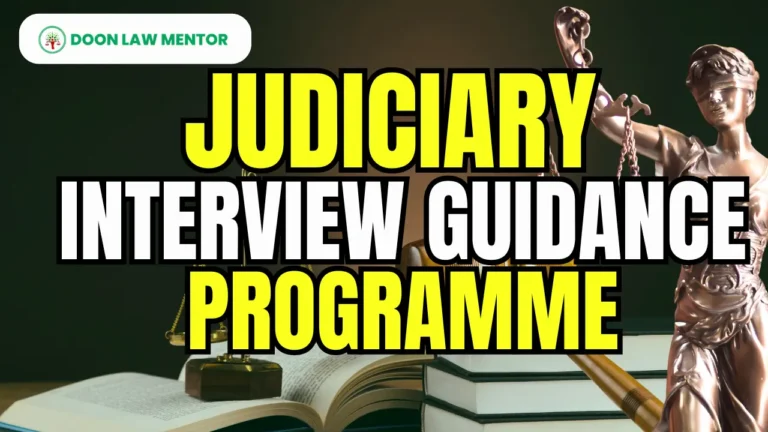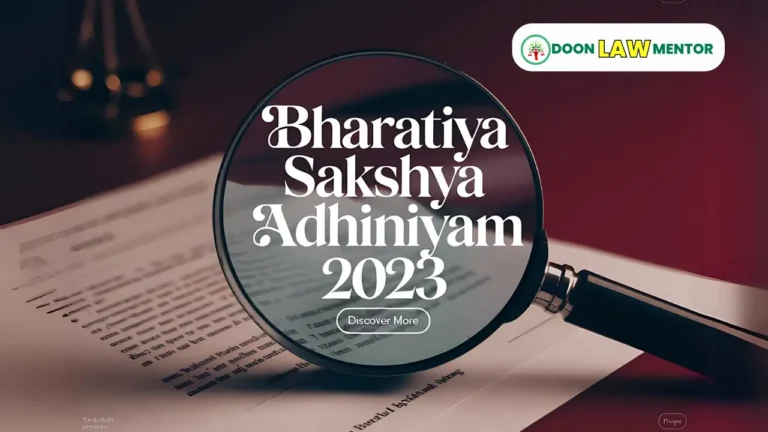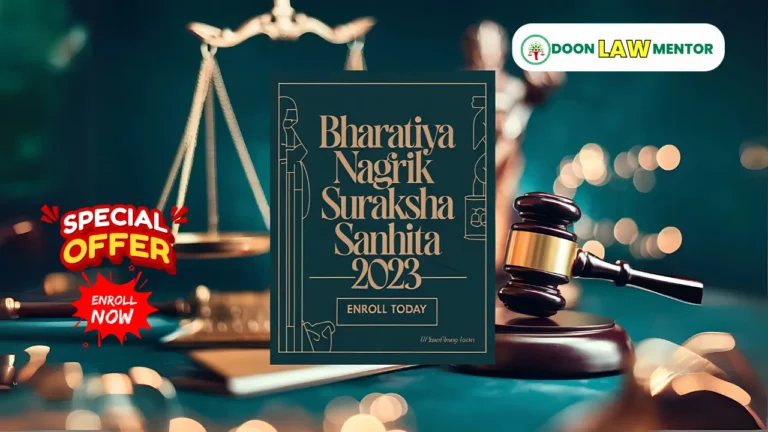The Chhattisgarh Civil Judge Exam postponed, as the Chhattisgarh High Court stayed the recruitment process on April 7, 2025, aligning with other state judiciary exams halted due to the Supreme Court’s reserved judgment in All India Judges Association v. Union of India. The court directed the Chhattisgarh Public Service Commission (CGPSC) to maintain the status quo, impacting aspirants across states. This blog explores the postponement, today’s court proceedings, and its implications for Judiciary, APO, and JLO aspirants preparing for 2025 exams.
Introduction
On April 7, 2025, the Chhattisgarh High Court issued a significant order, postponing the Chhattisgarh Civil Judge Exam 2025 and staying the ongoing recruitment process for 57 Civil Judge (Junior Division) positions announced by the Chhattisgarh Public Service Commission (CGPSC) on December 23, 2024. This decision aligns with a broader trend of state judiciary exams being deferred across India, driven by the Supreme Court’s reserved judgment in All India Judges Association v. Union of India, which addresses eligibility criteria for Judicial Magistrate First Class (JMFC) and Civil Judge (Junior Division) roles.
The High Court has directed the CGPSC to maintain the status quo, effectively halting the recruitment process, mirroring actions taken by other states like Andhra Pradesh and Gujarat. This development has shocked judiciary aspirants, with nearly every state’s ongoing recruitment process now on hold, creating uncertainty for thousands of candidates. This blog delves into the details of the postponement, insights from today’s court proceedings, and its implications for Judiciary, APO, and JLO aspirants preparing for 2025 exams.
Background: Chhattisgarh Civil Judge Exam Postponed 2025 and the All India Judges Association Case
The Chhattisgarh Public Service Commission (CGPSC) released the Chhattisgarh Judiciary Notification 2025 on December 23, 2024, announcing 57 vacancies for the Civil Judge (Junior Division) positions. The recruitment process included three stages: a Preliminary Exam, Main Exam, and Viva Voce, with the preliminary exam initially scheduled for May 18, 2025. Applications were accepted from December 26, 2024, to January 24, 2025, with the deadline later extended to February 23, 2025, following a High Court order in the case of Vinita Yadav v. State of Chhattisgarh (2025). This order allowed candidates without Bar enrollment under the Advocates Act, 1961, to apply provisionally, pending the final outcome of the petition.
The All India Judges Association Case
The Supreme Court case, All India Judges Association v. Union of India (Writ Petition (Civil) No. 1022/1989), has become a pivotal factor in the postponement of state judiciary exams across India. This long-pending matter, involving multiple interlocutory applications, addresses a critical question: Should a specific number of years of practice as a lawyer (e.g., 3 years) be a mandatory eligibility criterion for candidates applying for JMFC and Civil Judge (Junior Division) positions?
The Supreme Court reserved its judgment on this issue, with the next hearing scheduled for March 18, 2025. The uncertainty surrounding this case has already led to stays on recruitment processes in several states, including Andhra Pradesh, Gujarat, and Madhya Pradesh, prompting the Chhattisgarh High Court to follow suit.
Context of Other State Judiciary Exams
- Andhra Pradesh: The Andhra Pradesh High Court postponed its Civil Judge Exam 2025 on April 4, 2025, affecting 50 vacancies (40 direct, 10 by transfer), citing the same Supreme Court case.
- Gujarat: The Gujarat High Court’s recruitment process, involving over 200 expected vacancies, was stayed by the Supreme Court, with a return date set for March 18, 2025.
- Madhya Pradesh: The Madhya Pradesh Civil Judge Exam faced delays due to litigation over the 3-year practice requirement, with the Supreme Court granting interim relief to allow candidates to apply provisionally.
- Other States: States like Assam, West Bengal, Himachal Pradesh, and Uttarakhand are also likely to delay their exams, as notifications remain pending or are expected to be deferred due to the same issue.
This pattern of postponements reflects a cautious judicial approach, ensuring uniformity in eligibility criteria across states while awaiting the Supreme Court’s final ruling.
Today’s Court Proceedings: Chhattisgarh High Court’s Decision on April 7, 2025
On April 7, 2025, the Chhattisgarh High Court heard a matter concerning the ongoing recruitment process for the Chhattisgarh Civil Judge Exam 2025. The court took into account the Supreme Court’s reserved judgment in All India Judges Association v. Union of India and the broader trend of other state judiciary exams being postponed for the same reason.
Key Observations by the High Court
- Impact of the Supreme Court’s Reserved Judgment: The High Court acknowledged that the Supreme Court’s pending decision on minimum practice requirements for judicial appointments could significantly alter eligibility criteria, potentially affecting the current recruitment process in Chhattisgarh. The court emphasized the need to wait for clarity to avoid legal challenges later.
- Consistency with Other States: The court noted that several states, including Andhra Pradesh, Gujarat, and Madhya Pradesh, had already postponed their judiciary exams due to the same issue, highlighting the necessity for a uniform approach to ensure fairness and consistency across judicial recruitment processes.
- Maintaining Status Quo: To prevent complications and ensure procedural fairness, the High Court directed the CGPSC to stay the recruitment process and maintain the status quo until the Supreme Court delivers its judgment. This stay effectively halts all activities related to the exam, including the preliminary examination originally scheduled for May 18, 2025.
Court’s Directive to CGPSC
- The Chhattisgarh Public Service Commission was explicitly instructed not to proceed with the ongoing recruitment process, which includes issuing admit cards, conducting exams, or declaring results.
- The court’s order builds on the interim measures taken earlier in Vinita Yadav v. State of Chhattisgarh (2025), where the High Court had extended the application deadline to allow non-enrolled candidates to apply provisionally. However, the current stay is more comprehensive, pausing the entire process until the Supreme Court’s ruling provides clarity.
Video Insights on Today’s Proceedings
For a deeper understanding of today’s court proceedings, including the arguments presented, the court’s detailed reasoning, and expert commentary on the broader implications, we have prepared a comprehensive video. The video covers the nuances of the hearing, the court’s observations on the All India Judges Association case, and practical advice for aspirants navigating this delay. Be sure to watch it on our platform for a complete overview and to stay informed.
Impact on Judiciary Aspirants: A Shocker for the Community
The postponement of the Chhattisgarh Civil Judge Exam 2025 has sent shockwaves through the judiciary aspirant community, particularly as it follows a similar pattern of delays in other states. With nearly every state’s ongoing recruitment process now halted, aspirants face significant uncertainty and emotional turmoil.
1. Nationwide Recruitment Halts
- Chhattisgarh: The stay on the Chhattisgarh Civil Judge Exam 2025 affects 57 vacancies, leaving thousands of candidates in limbo.
- Andhra Pradesh: The Andhra Pradesh Civil Judge Exam 2025, involving 50 vacancies, was postponed on April 4, 2025, due to the same Supreme Court case.
- Gujarat: The Gujarat High Court’s recruitment process, with over 200 expected vacancies, was stayed by the Supreme Court, with the next hearing set for March 18, 2025.
- Madhya Pradesh: The Madhya Pradesh Civil Judge Exam faced delays due to litigation over the 3-year practice requirement, with the Supreme Court allowing provisional applications.
- Other States: States like Assam, West Bengal, Himachal Pradesh, and Uttarakhand are also expected to defer their exams, as notifications remain pending or are likely to be postponed due to the same issue.
This widespread suspension of recruitment processes has created a ripple effect, stalling the appointment of thousands of judicial officers across India.
2. Emotional and Financial Strain on Aspirants
- Uncertainty and Anxiety: Aspirants who have been preparing for months, if not years, now face uncertainty about exam dates, preparation timelines, and career prospects. This delay disrupts their study schedules and adds significant emotional stress.
- Financial Burden: Many candidates, especially from economically disadvantaged backgrounds, have invested heavily in coaching, study materials, and travel for exams. The indefinite postponement exacerbates their financial strain, as they must continue to sustain their preparation without a clear timeline.
- Public Sentiment: Social media platforms like X reflect the frustration among aspirants, with comments such as “Judiciary exams on hold everywhere—how are we supposed to plan our lives?” and “Another postponement! This is a shocker for us.” These sentiments highlight the emotional toll on the community.
3. Broader Implications for Judicial Recruitment
- Vacancy Crisis: The Supreme Court’s 2024 report highlighted 1,788 vacancies in the District Judge cadre and 3,512 vacancies in the Civil Judge cadre across India. These delays worsen the vacancy crisis, impacting the judiciary’s ability to deliver timely justice.
- Need for Uniformity: The All India Judges Association case underscores the need for uniform eligibility criteria across states, as variations (e.g., mandatory practice in Madhya Pradesh, provisional non-enrollment in Chhattisgarh) create inconsistencies.
- Systemic Delays: The absence of fixed timelines for recruitment processes contributes to systemic delays, leaving aspirants waiting for months or years, as seen in cases like the Delhi Judicial Services 2023, where mains results were delayed for 9 months.
Critical Analysis: A Shocker for Aspirants, But a Necessary Pause?
The postponement of the Chhattisgarh Civil Judge Exam 2025 and similar delays across states reflect a cautious judicial approach, but they also raise significant concerns about the impact on aspirants and the judicial system.
Strengths
- Judicial Prudence: The Chhattisgarh High Court’s decision to stay the recruitment process ensures that the Supreme Court’s final ruling in All India Judges Association will apply uniformly, preventing potential legal challenges to the recruitment process later, as seen in the Madhya Pradesh litigation.
- Ensuring Fairness: The stay protects candidates by ensuring that the recruitment process adheres to the final eligibility criteria, avoiding mid-process changes that could disqualify participants, as highlighted in the earlier Vinita Yadav v. State of Chhattisgarh (2025) ruling.
- Promoting Uniformity: Awaiting the Supreme Court’s decision on minimum practice requirements will standardize eligibility criteria across states, reducing discrepancies and ensuring a level playing field for all aspirants.
Challenges and Concerns
- Aspirant Frustration: The indefinite postponement, with the Supreme Court hearing scheduled for March 18, 2025, leaves aspirants in limbo, as reflected in X posts expressing shock and frustration. This uncertainty disrupts preparation schedules and adds emotional and financial strain.
- Vacancy Backlog: With 3,512 Civil Judge vacancies nationwide, these delays exacerbate the judicial backlog, as courts remain understaffed, impacting the delivery of justice and increasing pendency of cases.
- Lack of Fixed Timelines: The absence of a fixed timeline for recruitment processes contributes to systemic delays, leaving aspirants waiting indefinitely, a problem highlighted in cases like the Delhi Judicial Services 2023, where results were delayed for 9 months.
- Potential for Misalignment: While the stay ensures uniformity, it may lead to logistical challenges if the Supreme Court’s ruling requires significant changes to ongoing processes, such as re-evaluating applications or re-conducting exams.
Critical Perspective
The Chhattisgarh High Court’s decision to postpone the Civil Judge Exam 2025 is a necessary pause to ensure fairness and uniformity in judicial recruitment, aligning with the Supreme Court’s forthcoming judgment on eligibility criteria. The All India Judges Association case addresses a pivotal issue—whether minimum practice requirements should be mandatory—potentially reshaping the recruitment landscape for thousands of aspirants. However, the widespread postponement across states has created a shocker for aspirants, as X posts reflect, with many feeling demotivated by the uncertainty.
The Supreme Court’s delay in delivering its judgment (reserved, next hearing March 18, 2025) worsens the judicial vacancy crisis, undermining the efficiency of the justice system. While the BNSS, 2023, effective from July 1, 2024, introduces digital tools like online FIRs to enhance transparency in criminal justice, judicial recruitment processes lack similar mechanisms for fixed timelines. A more balanced approach might involve provisional recruitment with clear timelines for resolution post-judgment, alongside support mechanisms (e.g., counseling, financial aid) for aspirants, ensuring that justice delivery is not delayed while awaiting clarity on eligibility criteria.
Preparation Tips Amid Uncertainty for Aspirants
The postponement of the Chhattisgarh Civil Judge Exam 2025 provides aspirants with additional time to prepare, but it also requires a strategic approach to manage the uncertainty. Here are some actionable tips:
- Stay Updated: Regularly check the Chhattisgarh High Court website (highcourt.cg.gov.in) and CGPSC website (psc.cg.gov.in) for updates on the exam schedule and the Supreme Court’s judgment.
- Focus on Core Subjects: Continue preparing for the Preliminary Exam, which includes topics like the Constitution of India, Transfer of Property Act, and General Knowledge of Chhattisgarh. For the Main Exam, practice judgment writing and translation skills to build confidence.
- Understand State-Specific Laws: Familiarize yourself with Chhattisgarh-specific laws, such as the Chhattisgarh Rent Control Act, 2011, and Land Revenue Code, which are crucial for the exam syllabus.
- Practice Mock Tests: Use previous year papers and mock tests to improve speed and accuracy, simulating the exam environment to identify and address weak areas.
- Stay Resilient: Leverage the extra time to strengthen your preparation, focusing on both prelims (objective) and mains (descriptive) stages, and maintain a positive mindset despite the uncertainty.
- Watch Our Video: For a detailed breakdown of today’s court proceedings and expert insights on how to navigate this delay, check out our video on our platform. It includes practical advice to help you stay on track during this period.
Relevance for Judiciary, APO, and JLO Aspirants
The postponement of the Chhattisgarh Civil Judge Exam 2025 and its broader context are highly relevant for Judiciary, APO, and JLO aspirants preparing for 2025 exams:
- Prelims: Expect questions on the All India Judges Association case, Article 21 (right to justice), BNSS, 2023 provisions (Section 173 for FIRs), and eligibility criteria for judicial appointments.
- Mains: Write essays on topics like “Impact of Judicial Recruitment Delays on Aspirants and Justice Delivery” or “Balancing Uniformity and Timeliness in State Judiciary Exams,” discussing Article 21, judicial efficiency, and recruitment challenges, with references to Lalita Kumari v. State of Uttar Pradesh (2014) and Vinita Yadav v. State of Chhattisgarh (2025).
- Interviews: Discuss the implications of recruitment delays for judicial vacancies, aspirant welfare, and justice delivery, citing 2025 trends and advocating for systemic reforms to ensure timely recruitment processes.
Conclusion
The Chhattisgarh Civil Judge Exam 2025, initially scheduled for May 18, 2025, has been postponed following a Chhattisgarh High Court order on April 7, 2025, which stayed the recruitment process for 57 Civil Judge (Junior Division) positions. The court’s decision, driven by the Supreme Court’s reserved judgment in All India Judges Association v. Union of India, aligns with similar postponements in states like Andhra Pradesh, Gujarat, and Madhya Pradesh, bringing nearly all state judicial recruitment processes to a halt.
While this ensures fairness by awaiting uniform eligibility criteria, it has shocked aspirants, adding uncertainty and strain to their preparation journey. For Judiciary, APO, and JLO aspirants, this development highlights the need for resilience, strategic preparation, and staying informed. Don’t miss our video for a detailed breakdown of today’s proceedings and expert guidance on navigating this delay as you prepare for your 2025 exams.
Call-to-Action
Stay prepared amidst the Chhattisgarh Civil Judge Exam Postponed updates! Join Doon Law Mentor’s Courses for expert guidance. Follow @doonlawmentor on Instagram for daily legal updates, and watch our video for a detailed breakdown of today’s court proceedings!
FAQs
- Why was the Chhattisgarh Civil Judge Exam 2025 postponed?
The exam was postponed on April 7, 2025, due to a Chhattisgarh High Court stay, awaiting the Supreme Court’s reserved judgment in All India Judges Association v. Union of India on minimum practice requirements. - What is the All India Judges Association case about?
The case addresses whether a minimum number of years of practice (e.g., 3 years) should be required for JMFC and Civil Judge (Junior Division) positions, pending before the Supreme Court. - How many vacancies were announced for the Chhattisgarh Civil Judge Exam 2025?
The CGPSC announced 57 vacancies for Civil Judge (Junior Division) positions on December 23, 2024. - What was the original date of the Chhattisgarh Civil Judge Prelims Exam?
The preliminary exam was scheduled for May 18, 2025, but has been postponed due to the High Court’s stay. - What did the Chhattisgarh High Court direct the CGPSC to do?
The court directed the CGPSC to stay the recruitment process and maintain the status quo until the Supreme Court’s judgment is delivered. - Which other state judiciary exams have been postponed?
Exams in Andhra Pradesh, Gujarat, and Madhya Pradesh have also been postponed due to the same Supreme Court case. - How does this postponement affect judiciary aspirants?
It creates uncertainty, delays career plans, and adds emotional and financial strain, as reflected in X posts expressing aspirant frustration. - What is the next hearing date for the All India Judges Association case?
The Supreme Court has scheduled the next hearing for March 18, 2025. - How can aspirants prepare during this delay?
Aspirants should focus on core subjects like the Constitution of India, practice mock tests, and stay updated via the CGPSC website (psc.cg.gov.in). - Why is this postponement important for Judiciary aspirants?
It impacts judicial recruitment, eligibility criteria, and vacancy filling, making it a key topic for prelims, mains, and interviews in 2025 exams.
#DoonLawMentor #JudiciaryExamUpdate #ChhattisgarhCivilJudge #CGPSC #HighCourtStay #SupremeCourtJudgment #AllIndiaJudgesCase #CivilJudge2025 #JudiciaryPreparation #LawStudentsIndia #CurrentLegalNews #StatusQuoOrder #JudiciaryAspirants2025 #ExamPostponedAlert












